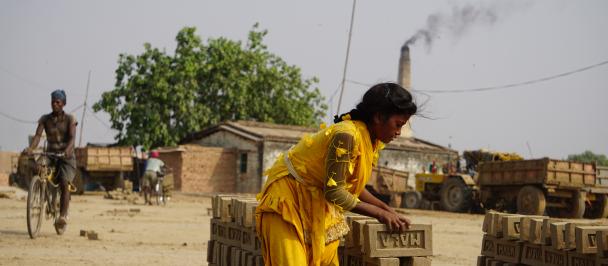Statement by Ms. Matilda Dimovska, UNDP Resident Representative in Uzbekistan at the Inception Workshop for Master Planning and Innovative Financial Solutions to Support the Implementation of “Yashil Makon” Initiative
September 20, 2022

Assalomu aleykum, muhtaram anjuman ishtirokchilari, xonimlar va janoblar!
Distinguished delegates, ladies and gentlemen!
Muhtaram Janob Oblomurodov,
Janob Odilbek Isakov,
Mr. Hans Friedrich Schodder,
Mr. Dmitry Mariyasin
I am very pleased be part of today’s event – to launch but also discuss the first results of our joint initiative in support of “Yashil Makon”.
We started this discussion 6 months ago (in March 2022), at the Urban Greening Workshop. A lot happened in meantime:
- We designed a joint project in support of “Yashil Makon”, we are happy to launch it today.
- We looked broader and expanded the coverage of it, to support afforestation in Surkhandarya, one of the most vulnerable regions.
- We did not wait but based on the Statement of Intent (State Ecology Committee, UNECE, UNDP) we engaged and deployed a team of experienced international experts. The initial phase of feasibility study for master planning and financial mechanisms/plan was completed. Today we are to move this further.
Uzbekistan faces major challenges caused by climate change, including increased desertification, water scarcity, more frequent draughts, sand and dust storms and depletion of the Aral Sea.
In today’s reality, people’s lives and livelihoods are being at risk by the multiple challenges posed by climate change, global pandemics, migration, spiking temperatures, environmental degradation.
Uzbekistan rightly set higher Nationally Determined Commitments to the Paris Agreement, it prioritized the transition to green economy, and initiated actions to address one of the most striking examples of human induced environmental disasters– the drying Aral Sea.
It also initiated the ambitious “Yashil Makon” – commitment to plant 1 billion trees and shrubs across the country over the next five years. Now we are gathered around it, in search of the best approaches and arrangements, in search of smart and thorough planning of this ambitious initiative.
So, what would make “Yashil Makon” smart and successful?
Let me start with the fact that “Yashil Makon” is not just about planting millions of trees. It’s about taking a good care of millions of trees planted in the right places.
As we all know, planting a massive number of trees is not necessarily a positive investment if not enough of them survive to become mature plants. Many planted trees don’t survive, or thrive, or deliver their promised benefits due to various factors.
A) Good planning, well-coordinated actions and sustainable approaches in tree care will deliver their promised benefits, e.g., their ability to store carbon which makes them potentially powerful tool against climate change.
- When different institutions involved in different phases, such as planting, infrastructure development, maintenance, financing, monitoring, there is a critical need to ensure that all actions are well synchronized and coordinated.
B) Keeping trees alive can be tricky in a city or rural area, it is not cheap to rightly plant trees. The required investment in terms of natural resources, labor and funding is often underestimated while planting large number of trees.
- When talking about investing natural resources to tree planting – the first thing to come is water. Any success and cost of afforestation will be measured by how efficiently water is used, particularly in a water-stressed country.
- A lot of human labor is required to plant, nurse, and grow trees. It is critical to make sure the tree growing is not just ecologically, but also socially sustainable.
C) A well-established and innovative financing model should be in place as soon as possible to ensure the results of the programme rise to the level of its ambition. Investment and financing sources must be diverse.
- These may include international financing, private domestic financing and green/SDG bonds to meet the needs of sustainable forest management and forestry development. This is also chance to introduce carbon offset trading.
- Public-private partnership opportunities, particularly in development of nurseries is another aspect to look into.
D) And finally – it is about people. Afforestation brings many benefits to people - improved air quality, landscape, opportunities for recreation, public health. It cannot be stressed enough how critically important is afforestation to improve the quality of human life, rebuilding natural habitat and harvesting of resources.
- Afforestation can also play an important role for livelihoods of people. For example, by increasing incomes of rural people and employment in remote areas.
Therefore, the Greening Master Plan – that is going to be developed within our joint project – is needed and can strengthen the sustainability of “Yashil Makon”.
We want to see “Yashil Makon” succeed and we stand ready, willing, and capable to support it for its implementation to reach its maximum potential and impact.

 Locations
Locations


